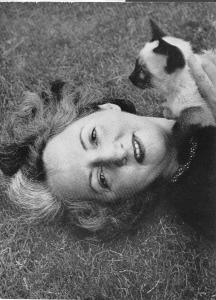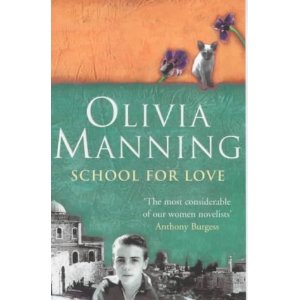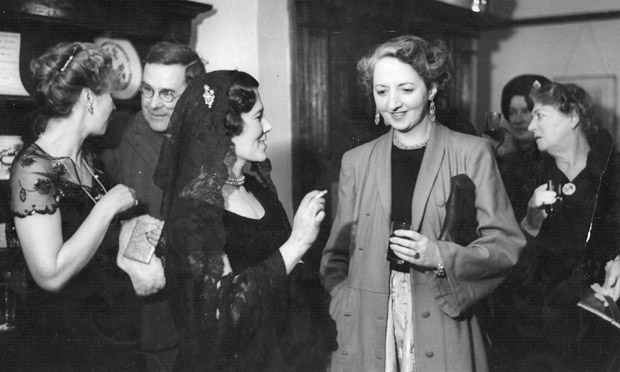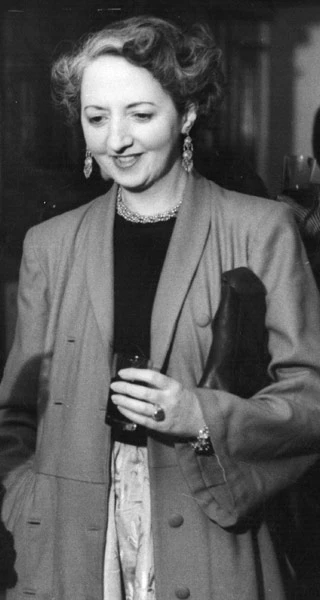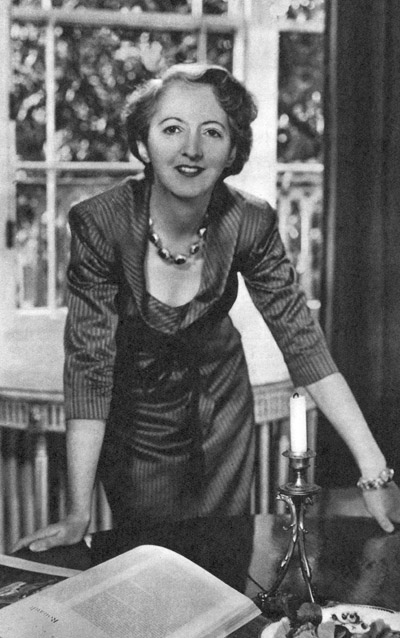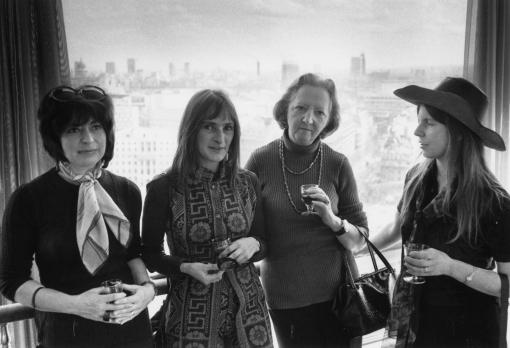Olivia Manning
| Olivia Manning | ||
|---|---|---|
| Nombre de nacimiento | Olivia Mary Manning | |
| Nacimiento | 2 de marzo de 1908 |
|
| Fallecimiento | 23 de julio de 1980 (72 años) |
|
| Nacionalidad | Británica | |
| Ocupación | Escritora | |
| Años activa | 1937-1980 | |
| Seudónimo | Jacob Morrow | |
| Lengua de producción literaria | Inglés | |
| Lengua materna | Inglés | |
| Género | Novela y poesía | |
| Obras notables | Fortunes of War | |
| Cónyuge | R.D. Smith (1939-1980) | |
| [editar datos en Wikidata] | ||
Olivia Mary Manning (2 de marzo de 1908–23 de julio de 1980) fue una novelista, poetisa,escritora y críticabritánica. Los argumentos de sus libros, ficticios y realistas, giraban en torno a viajes y odiseas personales, ambientadas principalmente en Europa (sobre todo Inglaterra eIrlanda) y Oriente Medio. Solía escribir sobre experiencias propias y, en ocasiones, apelaba también a la imaginación. Ha sido reconocida por su ojo artístico y por las vívidas descripciones presentes en sus libros.1
Durante su infancia, Manning vivió en Portsmouth e Irlanda, por lo que adquirió lo que describiría como «la habitual sensación anglo-irlandesa de no pertenecer a ninguna parte».1Asistió a una escuela de arte y luego se mudó a Londres, donde publicó, en 1937, su primera novela: The Wind Changes.2 En agosto de 1939 contrajo matrimonio con Reginald Smith(«Reggie»), un conferenciante del British Council que posteriormente fue enviado a Bucarest(Rumania), y más tarde a Grecia, Egipto y Palestina a medida que los nazis fueron invadiendo el este de Europa.3 Sus experiencias proveyeron la base para su obra más reconocida, las seis novelas que conforman The Balkan Trilogy y The Levant Trilogy, conocidas en forma colectiva como Fortunes of War. Los críticos catalogaron como irregular la calidad de su producción en general, pero Anthony Burgess describió esta serie en particular, publicada entre 1960 y 1980, como «la mejor constancia escrita ficticia de la guerra que haya sido producida por un escritor británico».4
Manning regresó a Londres después de la guerra y vivió allí hasta su muerte; durante el resto de su vida escribió poesías, relatos cortos, escritos de no ficción, críticas y obras de teatro para la BBC.5 Tanto Manning como su esposo fueron infieles, pero jamás contemplaron la posibilidad del divorcio.1 Manning tuvo una relación de amistad complicada con las escritorasStevie Smith e Iris Murdoch, ya que Manning, insegura de sí misma, sentía celos del éxito de sus amigas.1 Sus quejas constantes sobre todo lo que sucedía se ven reflejadas en su sobrenombre, «Olivia Moaning» («Olivia Quejas»), pero Reggie nunca flaqueó en su papel como el principal admirador de su esposa, confiado de que su talento finalmente sería reconocido.6 Como ella temía, la verdadera fama llegó después de su muerte (ocurrida en 1980), cuando se llevó a la televisión una adaptación de Fortunes of War, en 1987.7
Los libros de Manning han recibido poca atención por parte de la crítica. Como ocurrió durante su vida, las opiniones están divididas, en particular las que se basan en su caracterización y su descripción de otras culturas. Sus obras tienden a minimizar los problemas de género y no pueden clasificarse fácilmente como literatura feminista. Sin embargo, los estudios recientes han resaltado la importancia de Manning como una escritora de ficción bélica en un Imperio británico en decadencia. Sus obras critican la guerra, elracismo, el colonialismo y el imperialismo, y abarcan temáticas de desplazamiento y de alienación física y emocional.8
Fuente:
__________________________________________
Olivia Manning
| Olivia Manning | |
|---|---|
 |
|
| Born | 2 March 1908 Portsmouth |
| Died | 23 July 1980 (aged 72) Isle of Wight |
| Occupation | Writer |
Olivia Mary Manning CBE (2 March 1908 – 23 July 1980) was a British novelist, poet, writer and reviewer. Her fiction and non-fiction, frequently detailing journeys and personal odysseys, were principally set in England, Ireland, Europe and the Middle East. She often wrote from her personal experience, though her books also demonstrate strengths in imaginative writing. Her books are widely admired for her artistic eye and vivid descriptions of place.
Manning’s youth was divided between Portsmouth and Ireland, giving her what she described as “the usual Anglo-Irish sense of belonging nowhere”. She attended art school, and moved to London, where her first serious novel, The Wind Changes, was published in 1937. In August 1939 she married R.D. Smith (“Reggie”), a British Council lecturer posted in Bucharest, Romania, and subsequently in Greece, Egypt and Palestine as the Nazis overran Eastern Europe. Her experiences formed the basis for her best known work, the six novels making upThe Balkan Trilogy and The Levant Trilogy, known collectively as Fortunes of War. The overall quality of her output was considered uneven by critics, but this series, published between 1960 and 1980, was described by Anthony Burgess as “the finest fictional record of the war produced by a British writer”.
Manning returned to London after the war and lived there until her death, writing poetry, short stories, novels, non-fiction, reviews, and drama for the British Broadcasting Corporation(BBC). Both Manning and her husband had affairs, but they never contemplated divorce. Her relationships with writers such as Stevie Smith and Iris Murdoch were difficult, as an insecure Manning was jealous of their greater success. Her constant grumbling about all manner of subjects is reflected in her nickname, “Olivia Moaning”, but Reggie never wavered in his role as his wife’s principal supporter and encourager, confident that her talent would ultimately be recognised. As she had feared, real fame only came after her death in 1980, when an adaptation of Fortunes of War was televised in 1987.
Manning’s books have received limited critical attention; as during her life, opinions are divided, particularly about her characterisation and portrayal of other cultures. Her works tend to minimise issues of gender, and are not easily classified as feminist literature. Nevertheless, recent scholarship has highlighted Manning’s importance as a woman writer of war fiction and of the British Empire in decline. Her works are critical of war, racism,colonialism and imperialism, and examine themes of displacement and physical and emotional alienation.
Fuente:
